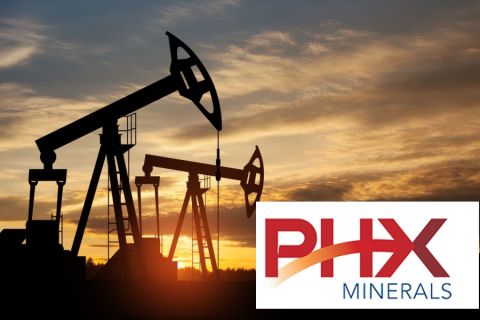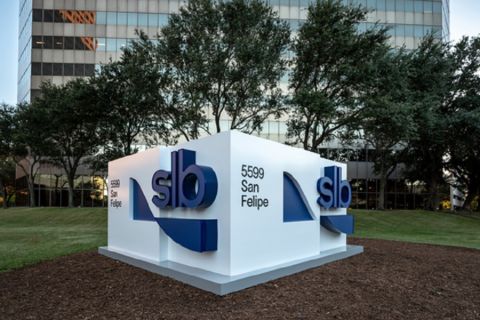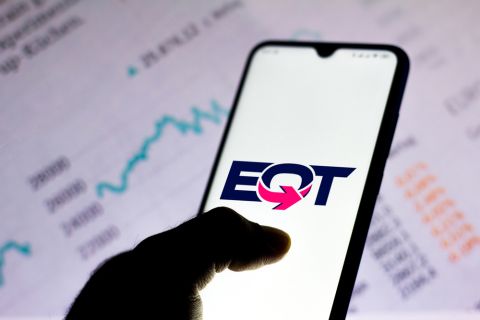Presented by:

Editor's note: This article appears in the E&P newsletter. Subscribe here.
Operators and service providers in the oil and gas industry are constantly looking for technologies and systems to help them get a leg up on their competitors. In some cases, however, investing in these technologies and systems couldn’t necessarily ensure that the company gets ahead, but rather keeps them from falling behind. More companies are employing blockchain systems within their work sites, and it is quickly becoming a uniform requirement.
Blockchain technology is a system used to keeping companies organized by streamlining transactions, allowing them to keep their finances organized and protect against potentially dangerous hacks. In the oil and gas industry, it can help operators and service providers connected to keep information secure and improve their ESG scores.
To get a better idea of how blockchain systems can benefit the energy industry, E&P spoke with blockchain experts in an exclusive roundtable featuring William Fox, Data Gumbo's chief product officer; Chris Georgen, Topl's founder and chief architect; and OriginClear CEO Riggs Eckelberry.
Can you provide a brief overview of your company and the blockchain technology you deploy?
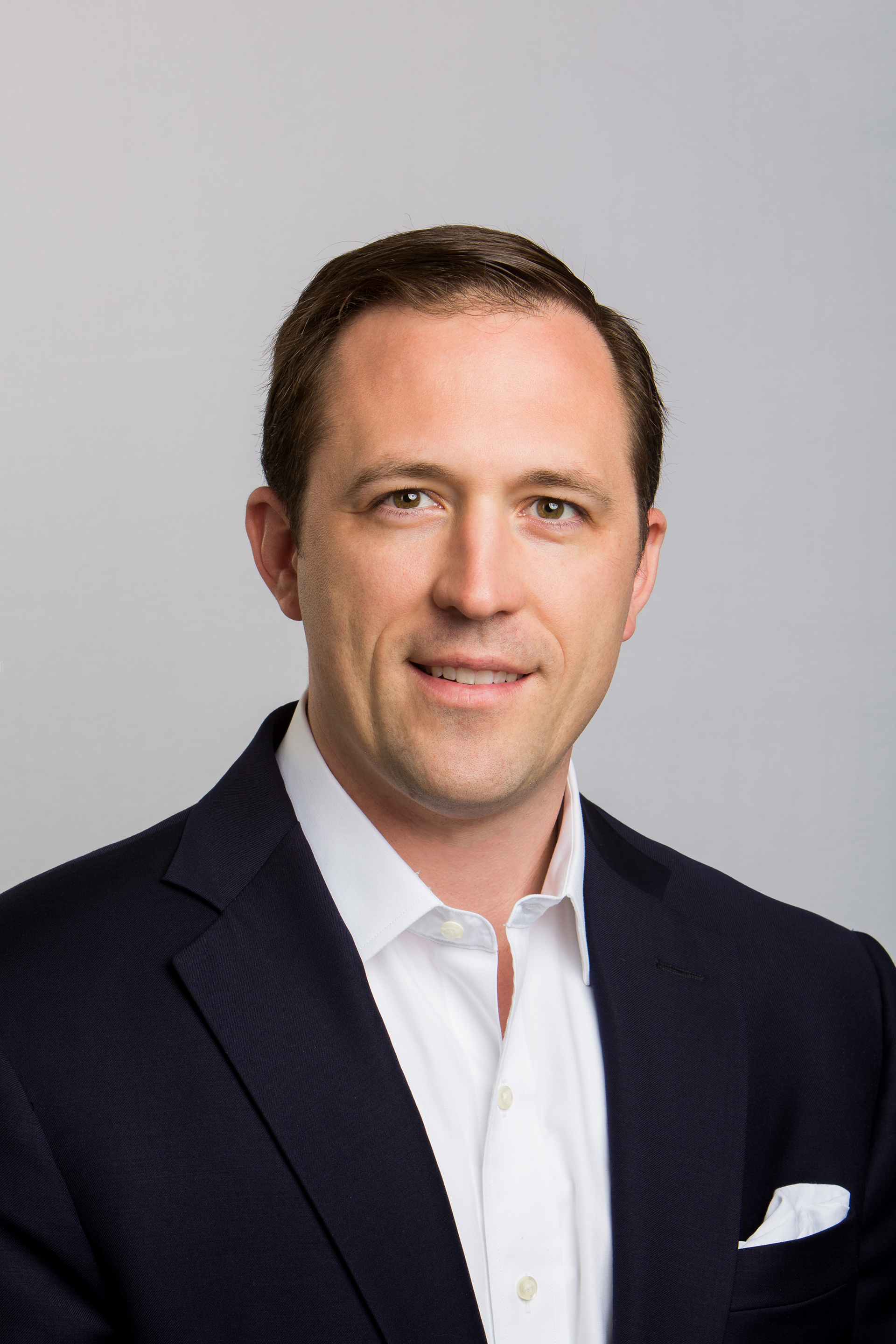
(Source: Data Gumbo)
William Fox: Data Gumbo provides GumboNet, which is the smart contract network for industry. What that means is that we enable companies to execute their contracts between each other, using smart contracts and distributed ledger. It doesn't replace existing natural language contracts. There'll be an MSA [master services agreement], maybe there'll be a contract for the delivery of goods and services, but it allows the parties to share data from both sides, and maybe even third parties. To automatically trigger the terms of those contracts, calculate the payments, collect the evidence to support that the services and goods were delivered and to spec, and then initiate payment.
And so both the accounts receivable and accounts payable sides get an output from the system that can then go into their ERP [enterprise resource planning] or general ledger system to record the payment.
Chris Georgen: We have built our blockchain for verification of ESG, verification more broadly and adding proof to sustainability or ethical claims. So you think of us very much as an enabling infrastructure, or as an underlying network for the sustainability claims that are being made for energy or other supply chain transitions.
Riggs Eckelberry: We were, strangely enough, in the algae for biofuels space. We were called OriginOil at the time. The problem was that when fracking was discovered by 2014, oil prices were too low for algae to compete. So we realized that we needed to pivot. At the time, we had a solid separation technology that we used to harvest the algae, and we realized we could use it to separate sewage. That’s when we pivoted into water, and we have since been a part of the company in McKinney, Texas—that is most of our operations.
What we’ve done really is, in a way, moved beyond technology. There is lots of technology in the water industry. What is lacking, really, is a lot of velocity. Water companies grow very slowly, and in 2020, we really realized in a strange way it was COVID that incentivized us to do something or else. So from a business point of view, we realized that the way to accelerate things was to go to water as a managed service.
What differentiates your company from other blockchain competitors?
Fox: It's not built to be a point solution where you go and sell a solution to one big incumbent and then they force it on their supply chain. It's one network. So when you sign up to be on the GumboNet network, you're on it. If [an operator] is on and another service provider is getting onboarded, it's not a whole new connection. It's OK. Connect to [the operator]. We already have all their assets model. We already have them in the system. Same thing with other companies. And so that way we can maintain a data standard across all companies. We can guarantee interoperability between all companies, and we can severely shorten the time to go from deciding to do something and executing a successful Phase 1 pilot.

(Source: Topl)
Georgen: One of the things that we focused on from the very beginning was making sure that we were always building with a user-driven purpose. There's a lot of great academic projects out there. There are a lot of research-driven blockchain efforts that miss their underlying use cases or miss the potential to actually fit in nicely with their commercial use cases.
For us, we've always focused heavily on tooling, meaning on all the things that go on top of the blockchain to make it easier for corporate entities and other organizations to be able to integrate onto the technology while still using their current ERP systems, legacy systems or whatever other technology they might be using on top of blockchain.
Eckelberry: Back in 2018, I started working on this and I created a coin called WaterChain. It was our first effort to do this. Ultimately, we had to give it up. Why? Because we couldn't figure out how to attach that coin to money. Now that we have water as a managed service, every single gallon in the system has money attached to it. It's being paid for on a service contract. We can monetize that and say this thing has real value. All of a sudden, we have something where it's a contract, an investor and dividends and so forth, and it's actual money attached to water. Eventually, that's tradable, swappable, just like they have in the NFT [non-fungible token] markets.
Our purpose here is just to make it easy. We pay dividends to investors currently, and it's a pain if there's a wrong routing number and ACH [automated clearing house], this, whatever. It becomes escalated to the highest level, like, where's my payment? Well, that's fine if you have 200 investors, but if you have 2,000, I don't think so. That's why we do it, but that's also the potential for it.
How does your technology benefit operators in the oil and gas industry? What competitive edge does your technology provide?
Fox: We view this as win-win, and so there's things that are shared by going through this process. So one of the things is a...what we call radical transparency because both sides are going to agree what is the optimum way to measure these things. So taking production chemicals is an example. You know, the operator may have some data available at each pad. They might not have anything, depending on the age of the pad or what the infrastructure is. The service for provider will likely have whatever tickets their pumpers and their truck drivers have been filling out. And they can share that. But a number of them also do have IoT [Internet of Things] sensors out on their tags because they need to know when to go fill them. And so today, or let's say pretty smart contract, [it is] very unlikely that both sides are sharing all that data.
And so by sharing that data, on the one hand, SCADA and truck data, the operator gets a more comprehensive view and closer to real-time view of both the treatment program and the spend. And on the other hand, the service provider sees their day sales outstanding, shrink down to contracting. So instead of taking 30 days to get the invoice approved and 30 days to get paid, maybe it's a day to get the invoice approved and then they can negotiate on the terms of payment.
Georgen: In regard to the oil and gas industry, we focus on the energy transition. One of the areas that we're involved in is commodity differentiation process, where you're going to have one commodity like natural gas, and it's going to have different environmental properties based on how it's produced.
What we're seeing more and more is energy companies wanting to differentiate, wanting to be able to win contracts or a price premium based on specific environmental practices as they relate to fuels being produced.
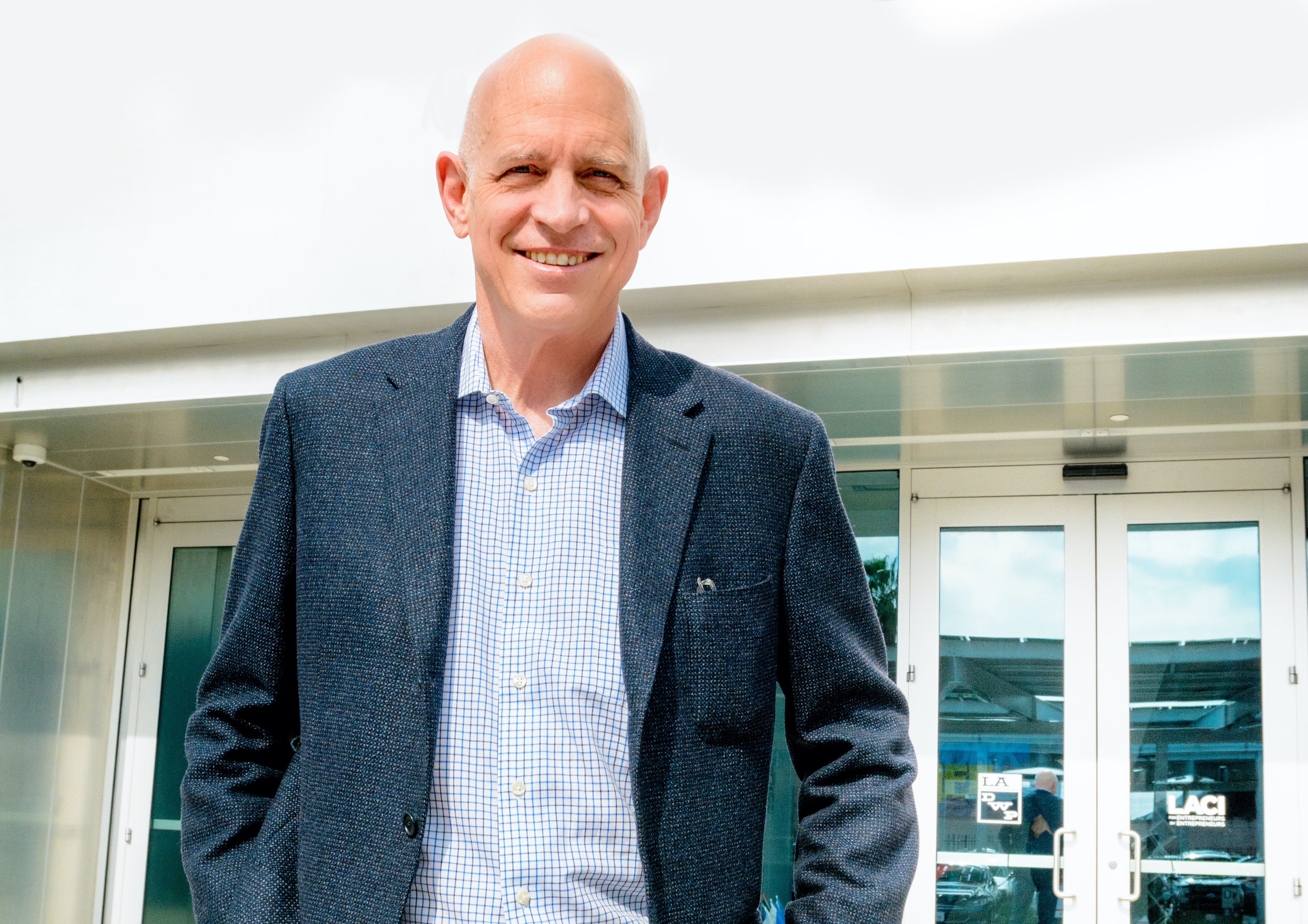
(Source: OriginClear)
Eckelberry: The great thing about blockchain is it deals with the chaos issue. Sure, you can do everything on a database, but then databases break, they get hacked, there's issues with deliverability, especially on money. Well, that's where the blockchain gives you a very clean environment that does not require 100% consensus to operate, that is secure and that also deals with the money delivery issue. That's one thing that I can think of right away.
Otherwise, we can democratize investment. On my side, I'm looking at being able to literally let a grandmother in Korea on her Samsung invest a thousand dollars, and it goes into projects that are pretty big. I think that's a way to democratize oil and gas investment so that more people have a shot at it as an alternate market, you might say.
What specific challenges in the field does your technology remedy?
Fox: Aligning incentives with maybe contracts that would've been harder to administer before—things like paying. There are a lot of contracts later in out there that say, 'OK, well, if you hire my company to run your program on your facilities, we're going to have an X, Y or Z performance improvement. And then we expect to get an uplift, let's say a 10 or 20% bonus because we've improved production.'
Well now you'll be able to prove that. So that's definitely a benefit and that you wouldn't get if it was my database versus your database. Or if you didn't have a neutral shared picture of the truth, it would be much harder to make that stick.
[Another thing] that comes out of this is to the extent the companies use smart contracts. They start to build an immutable record around that asset. For instance, when we support a company that's doing 3D printed spare parts... Let's say they had a packet of documentation that goes with that part where there's everything from the provenances of the powder that was used by an additive manufacturing machine, the laser measurements of the dimensions of the part after it was printed, the third-party inspection, and then let's say the bill of lading that took it from where it was printed offshore to a vessel, for instance. Well, they started to build up a record for that part or that assembly that can be referenced potentially forever. As opposed to a paper document package that is going to be delivered and going in the back of the filing cabinet within a week.
Eckelberry: The whole fracking treatment space is really complex. It's really some big players doing it. The thing about an oil well is it can't stop. It's got to keep going. It's very mission critical. It's very high level stuff going on.
Let's say somebody's already in the space and they can use more durable, portable, deployable technology. Then we partner with them. We've done that in the past, for example, with people who supply military water treatment systems. So our technology ends up in Afghanistan through someone else's system, and we're the conveyance. That's probably how it'll be done.
How does your technology benefit your clients’ finances and ESG scores?
Fox: In an easily executed reality—where instead of there maybe being my spreadsheet, your spreadsheet [and] maybe a third-party key performance indicator provides a report—we have a shared set of facts that enable us to move to performance-based contracts, which for service providers who feel like they have a competitive edge or have lower emissions because they've converted to more recent, interest for the frack fleet, whatever it might be, they now have an approval record of that improved performance or those lower emissions or whatever it is—less carbon intensity. And they can demonstrate that both to their existing customers and potential future customers.
On the operator side, we think moving from accruals and managing 30 to 90 days, looking at the rearview mirror as invoices come in to moving to near real time...these operating expenses near real time, well construction operations enables better decision-making.
Georgen: When companies work with us directly, the upfront financial cost is basically zero, except for the engineering or integration work they do to connect their legacy systems to the blockchain.

Why should potential clients invest in employing blockchain services?
Fox: The genie's out of the bottle, and in 10 years time it'll be the laggers who aren't doing this. I mean, all the biggest companies in the world, not with us, but general are looking at how this can help their supply chains, how it can help with provenance [and] how it can help with efficiency. For a whole category of business-to-business transactions, smart contracts are going to be the way it's done. And this is the future of B2B [business to business]. So we had paper invoices, then we had EDI and then we had manual-shared workflows and then the next step is our contracts.
Georgen: As more and more groups move in this direction and find themselves having to prove ESG claims, or even just make the ESG claims, there's going to be more pressure and more scrutiny on those claims. Stakeholders, customers and regulators are looking for validation, for verification of that information, and they want that to be independent and they want that to be auditable. This idea of auditable data, especially data from the field or data that needs to be collected in real time, is exactly what blockchain is meant for.
This whole ESG transformation is moving out of its publicity phase and into the phase where there's going to be a lot more scrutiny, both now and then especially over the next 12 to 24 months. Allowing companies to be ready for and to stand up to scrutiny is where blockchain technology can play an integral role.
Eckelberry: We're not asking them to invest in blockchain technology. We're telling them, 'we're going to make life easier for you.' It's a quality of business type story. In other words, you're investing anyway in this water on demand subsidiary that we've created, and you're going to get dividends. Eventually you're going to receive them in the form of a token that is fully exchangeable with dollars. We're not trying to replace the dollar per se, but it's going to be much more desirable.
What do you see happening with your company and blockchain as a whole moving forward in the future?
Fox: We started in upstream oil and gas because that's where the majority of us came from, but we were already being dragged by osmosis, the transportation network that goes along with the production of oil, gas, that pipeline, truck, rail or vessels. And of course, if you can figure out how to trace and pay for haulage of a tractor trailer full of oil, you can also do it for milk and you can do it for grain. And from the perspective of the smart contract, it looks very similar.
So we are looking at about 10 industries where we share use cases or share instead of verticals, horizontal. Around transportation, logistics and paying for services rentals, over the next year or so, we're going to look to move into those where it makes sense. And we've already got three or four in flight when it comes to transportation, logistics types, use cases. So onward and upward for Data Gumbo.
Georgen: We recognize that blockchain is one part of the answer. For us, what that means is building out our network of partnerships and integrations. So our vision for Topl is to be able to have lots of service providers and other technology options in our network, everything from IoT to RFID [radio-frequency identification] to satellite imaging, all of which have already built out their platform integrations with the Topl blockchain.
So when we are having conversations with partners, we can look at a particular problem or area that a company is trying to address and say this can be solved with satellites, this can be solved with IoT and we have a partner, or we have these studies and use cases that show this method of data collection and here's how the Topl blockchain can help.
Eckelberry: This is a step forward, and I see it as an improvement, and I see it as inevitable. Blockchain will be the underlying infrastructure for all kinds of activities, primarily financial.
Recommended Reading
PHX Minerals’ Borrowing Base Reaffirmed
2024-04-19 - PHX Minerals said the company’s credit facility was extended through Sept. 1, 2028.
SLB’s ChampionX Acquisition Key to Production Recovery Market
2024-04-19 - During a quarterly earnings call, SLB CEO Olivier Le Peuch highlighted the production recovery market as a key part of the company’s growth strategy.
BP Restructures, Reduces Executive Team to 10
2024-04-18 - BP said the organizational changes will reduce duplication and reporting line complexity.
Matador Resources Announces Quarterly Cash Dividend
2024-04-18 - Matador Resources’ dividend is payable on June 7 to shareholders of record by May 17.
EQT Declares Quarterly Dividend
2024-04-18 - EQT Corp.’s dividend is payable June 1 to shareholders of record by May 8.

